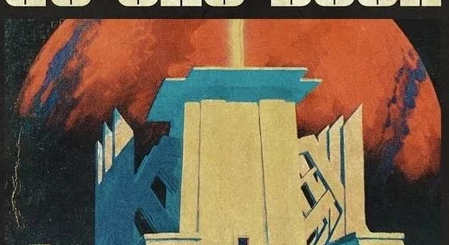Slow Animals by The Strokes Lyrics Meaning – Navigating the Maze of Generational Anxiety
Lyrics
Everyone can hear you in this whole damn crowd
You don’t have to try so hard
I think they got the message, you were out of your mind
It’s not so good to see you this upset
But the next generation will forget
They’re always scared of where their daughter’s been
‘Cause who knows? She could be alone with men
They never wanna see or hear or think about again
Is it gone?
I hope that nothing’s wrong
Is it gone?
I hope that nothing’s wrong
Oh, please don’t try to lick my face
Everyone can see that you’re a psycho in this place
The next generation will forget
Where their daughters’ been
Or who knows, they could be alone with men
They’re never gonna let you understand
Or show you what is to be a man
You don’t wanna sit down and think or hear
You don’t think anyone is in your ear
I never wanna see your face
Accuse, it’s no one’s fault
Is it gone?
I hope that nothing’s wrong
Is it gone?
I hope that nothing’s wrong
Is it gone?
I hope that nothing’s wrong
Is it gone?
I hope that nothing’s wrong
They’re always scared of where their daughter’s been
‘Cause who knows? She could be alone with men
They never wanna see or hear or think about again
Is it gone?
I hope that nothing’s wrong
Is it gone?
I hope that nothing’s wrong
The Strokes, known for their razor-edge commentary wrapped in velvet melodies, bring us ‘Slow Animals’ – a track reverberating with a certain existential angst that seeps through the generational cracks. This is not merely a song. It’s a nuanced exploration of societal pressures, generational divides, and the relentless march of time that eclipses all.
Diving deeper into this sonic journey, it’s evident that ‘Slow Animals’ is more like an echoing cry from the abyss of collective consciousness. Julian Casablancas, with his penchant for thought-provoking lyrics and evocative vocal deliveries, invites us to untangle the complexities of our modern zeitgeist. Let us peel back the layers of this auditory enigma, uncovering its treasure trove of implications.
The Siren’s Call to the ‘Next Generation’
The recurring mantra ‘the next generation will forget’ serves as both a solace and a curse. It resounds as a harsh truth: the inevitability of our legacies and worries dissolving into the sands of time. Through this, the song contemplates the temporary nature of our deepest concerns and the relentless push forward—implying an ultimate liberation from the burdens we carry today.
Simultaneously, this repetition highlights a foreboding sense of loss. It isn’t just about forgetting the struggles; it’s also about a collective amnesia that threatens to erase the progress and wisdom accrued over lifespans. The Strokes artfully capture this dual-edged sword of temporal existence and societal advancement.
Dissecting the Dichotomy of Presence and Absence
Throughout ‘Slow Animals’, there’s a palpable tension between the need for recognition (‘Everyone can hear you in this whole damn crowd’) and the fear of exposure (‘But they’re never gonna let you understand’). The song paints a portrait of an individual desperately seeking validation while simultaneously recoiling from the very attention they crave.
Such lyrics illustrate the contradiction inherent in human nature: our desire to be perceived, acknowledged, and yet, our dread of the same scrutiny—a theme that dances pensively throughout the track, enticing listeners to introspect on their personal paradoxes of self.
Unpacking the ‘Alone with Men’ Motif
A striking aspect woven into the lyrics is the concern over a daughter ‘alone with men’, representing deeper societal fears around vulnerability and the policing of female autonomy. This anxiety is not reserved for one generation; it perpetuates through time, echoing historic gender dynamics and the enduring struggle for independence and safety.
The Strokes manage to confront listeners with the uncomfortable reality of gendered restrictions and the cyclical nature of these concerns. This reflective motif stands as a microcosm for broader themes of control, freedom, and the gendered experience within the song’s lyrical landscape.
The Hidden Meaning: A Lament for Lost Innocence
‘Is it gone?’ The question repeats like a somber incantation, less seeking an answer than expressing a profound resignation. Here lies the crux of the song: a yearning for the simplicity and naivety that once was, a pining for a past unmarred by cynicism and worldly disenchantment.
Through the deceptively simple query, the band conjures a nostalgic lament, echoed in every ‘I hope that, that, that it’s wrong.’ It is a rebellion against the present, a plea for the lost horizon of innocence that, once acknowledged, seems painfully out of reach.
Memorable Lines: The Power of Accusatory Absolution
The assertive proclamation ‘I never wanna see your face, accuse, it’s no one’s fault’ delivers an intriguing paradoxical punch. It’s at once an act of accusation and absolution, a moment of anger held in balance with an understanding of shared human frailty. This lyric reverberates long after the song ends, etching itself into our collective memory.
This line, while evoking a strong emotional response, encapsulates the song’s essence: an exploration of the muddled terrain of blame, responsibility, and the intricate dance between personal and societal woes. It’s this sophisticated lyricism that solidifies ‘Slow Animals’ as a contemplative masterpiece in The Strokes’ oeuvre.








